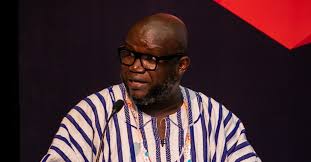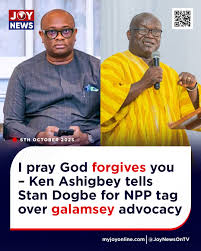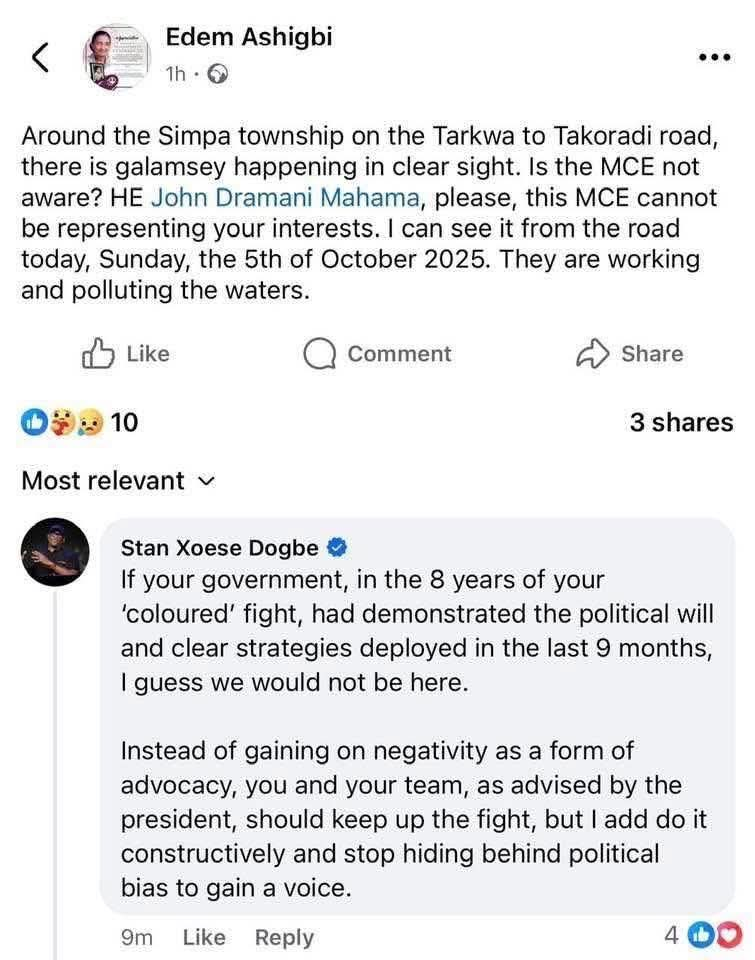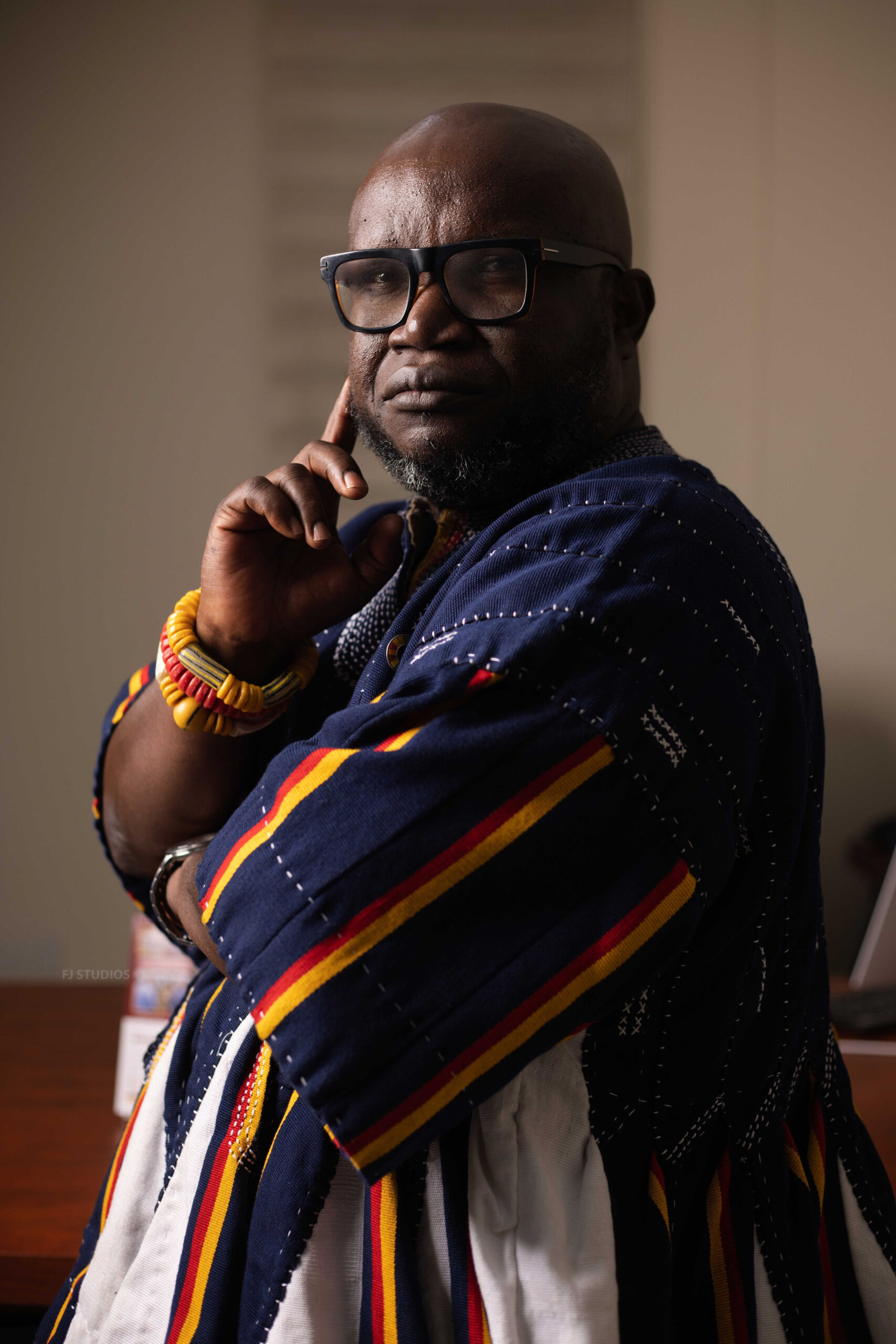Welcome Address, 24th Knowledge Forum – Leveraging Fibre for Accelerated Development
It is a great honour to welcome you all to the 24th edition of the Ghana Chamber of Telecommunications’ Knowledge Forum, a platform dedicated to deepening insight, fostering dialogue, and contributing meaningfully to policy, legislation, and regulation within our sector.
Today’s forum is not just another gathering. It is a significant milestone in our journey. Under the theme “Leveraging Fibre for Accelerated Development,” we are here to explore how fibre optic infrastructure can propel our national development to new heights. At this very event, we are proud to unveil the Telecommunications Industry Optic Fibre Minimum Specifications and Standards Manual—a benchmark document that has been meticulously crafted to guide and harmonise the deployment of fibre optic infrastructure across Ghana. This manual is not just a document, but a culmination of collective wisdom, local experience, and international best practices from Europe, Egypt, and other fibre-progressive nations.
It is our acknowledgement that as an industry we have a role to play to ensure the protection and preservation of our optical fibre network. We have to design quality as a given, build to last, construct beyond the minimum specifications. So not only have we developed this standard with our contractors, we have also trained them on these standards. Our engineers would supervise them and measure their work to these standards. Any contractor who fails to meet these standards would be blacklisted and not undertake any jobs for our members. Our regulator would measure our infrastructure according to this standards.
Ladies and gentlemen, fibre is more than cable in the ground. It is the digital bloodstream of our economy. It powers communication networks, connects businesses to the cloud, supports government digital services, and enables innovations in education, health, agriculture, and commerce.
However, this critical infrastructure is under constant threat.
Let me share some sobering statistics. For the past year 2024, the industry recorded: 5,600 fibre cuts. With a total cost of damage estimated at $9.2 million or over GHS 129 million. An average cost of GHS 23,000 per cut. And a total restoration time of 422.54 days—that’s more than a year lost in cumulative productivity. These disruptions cost telecom companies, stall businesses, and affect banking services, emergency communications, and education delivery.
The causes of these fibre cuts are many, but here are the top villians:
- Road Construction – 20.68%
- Theft and Vandalism – 13.98%
- Private Developer Activity – 13.4%
- Broken core, drain construction, fire, farming, flooding, mining activities, utility works from GWCL, ECG, and even bridge construction all contribute significantly.
This tells us something urgent but straightforward: our infrastructure is vulnerable, and we need collective action to protect it. We are all in this together, and it’s through our combined efforts that we can make a real difference. We are, however, not alone in this fight. I want to acknowledge the commendable support we continue to receive from our regulators and policy institutions:
The National Communications Authority (NCA) has been instrumental in dedicating resources to support the prosecution of vandals and saboteurs. The Cybersecurity Authority has partnered with us to enhance our security posture and resilience.
The Ministry of Communications, Digital Technology, and Innovation has provided policy direction, helping drive the Framework for the Protection of Critical Information Infrastructure (CII), which includes business continuity planning, security strategies, and operational resilience. Our current Minister within four months has spoken clearly and more than all his predecessors. This support must be applauded. But we must go further and there is a lot more that has to be done.
We must now intensify collaboration with fellow infrastructure stakeholders, especially:
- Ghana Water Company Limited
- Electricity Company of Ghana
- Road Agencies, including the Ghana Highway Authority and the Department of Urban Roads
We all share the Right of Way, so we must also share responsibility for protecting each other’s infrastructure.
We are therefore calling for:
- Mandatory inclusion of telecom ducts in all new road constructions.
- Permitting and Approval Enforcement – Enforce strict rules requiring permits before any excavation.
- A national “Call Before You Dig” policy to prevent accidental cuts.
- Dedicated Utility Management Units within road agencies, with a single point of contact for coordination.
- Collaborative resolution of landlord encroachment issues that continue to hinder fibre rollouts in urban areas.
- Most importantly we need to arrest and prosecute all those national saboteurs that continue to damage this critical national infrastructure with reckless abandon. We could have spent the over $10 million dollars to extend fibre to my twin towns of Tsiame and Asadame, rather than expend that on fixing fibre cuts.
We are not just here to complain—we are here to ideate and build solutions.
So today, I invite you all to treat this forum as a collaborative space.
- Share your ideas!
- Raise your concerns!
- And come up with innovations.
Your input is invaluable, and together, let us build a more resilient, secure, and efficient fibre optic network—one that is worthy of Ghana’s digital transformation journey.
In conclusion, I want to make a heartfelt call to action: To our stakeholders, protect our fibre, protect Ghana’s digital backbone.
To the Honourable Minister, we ask for your continued leadership and policy direction to safeguard fibre deployments, especially with enforcement and planning across government. We should have that Act of Parliament to ensure protection of telecommunication is enshrined clearly in law and we consolidate all the laws that currently exist. Also get your other colleagues, Minister for Interior and Attorney General to ensure the implementation of the law once passed.
Our Regulators, the NCA and CSA you have a major role to play in the implementation of the laws and regulations that exist and when the new law is passed. We need to move beyond the obligations on your licensed entities. Please protect our infrastructure. And to our Road Agencies, we urge you to be proactive partners—integrate ducts into roads, issue permits responsibly, and collaborate with us fully to ensure utility preservation.
As we launch the Fibre Minimum Specifications Manual today, let it not be just a document on a shelf but a tool we all adopt, enforce, and live by.
Let today be a turning point.
Thank you for being here today. Your presence is a testament to your commitment to our cause. I encourage each one of you to actively participate, share your ideas, and contribute to the discussions. Let’s make this a truly productive session.
Akpe na mi.
This post has already been read 4325 times!





Post Comment